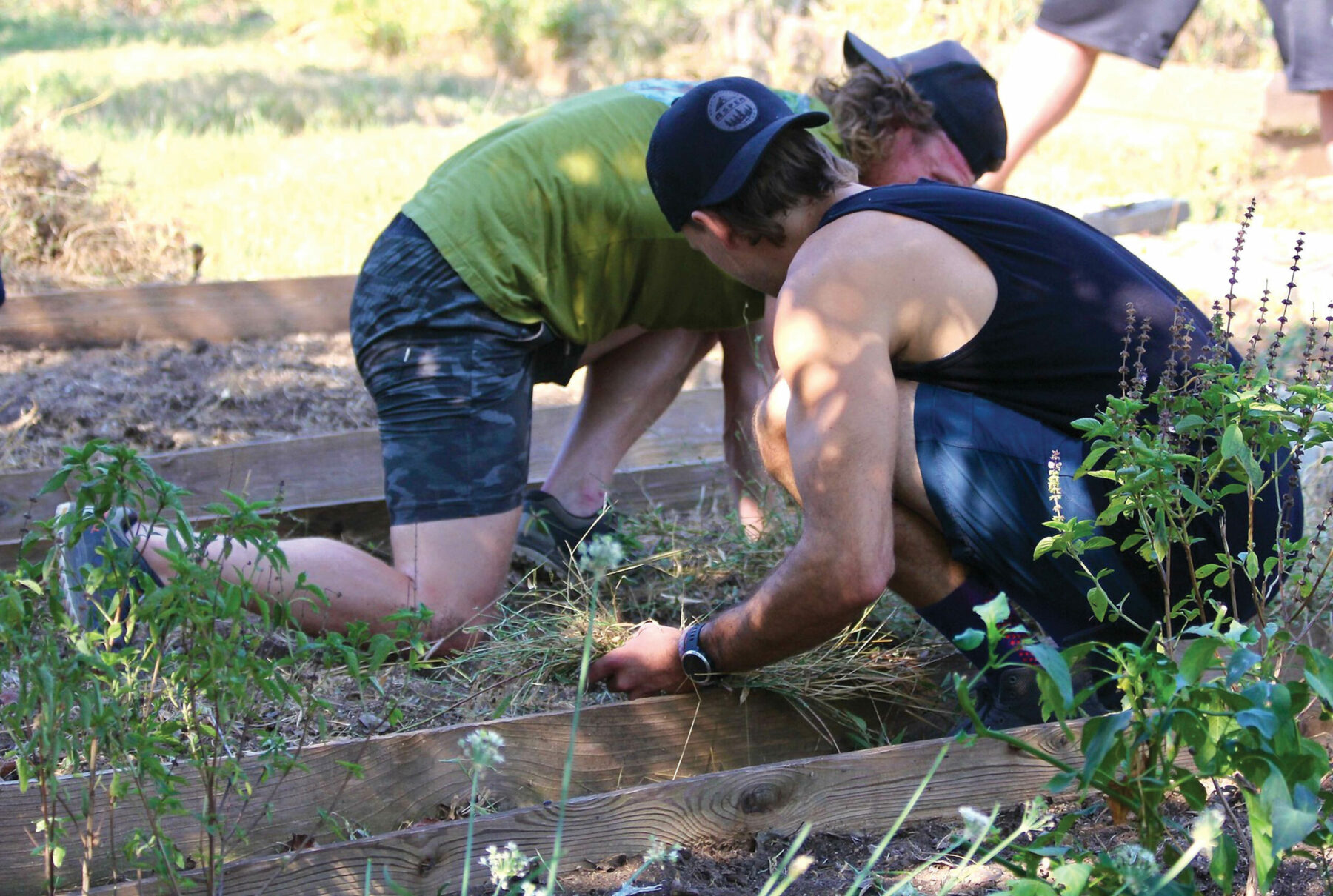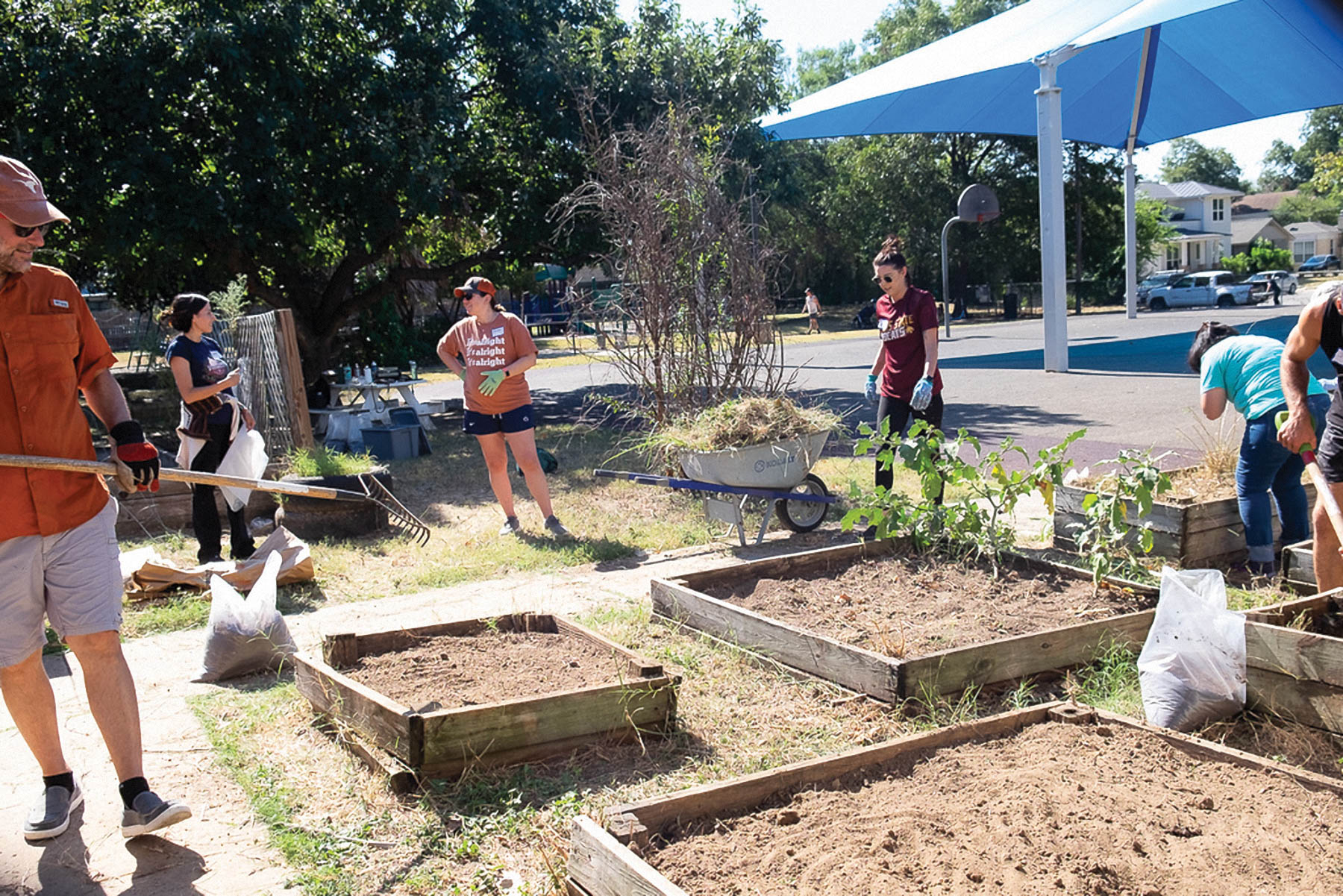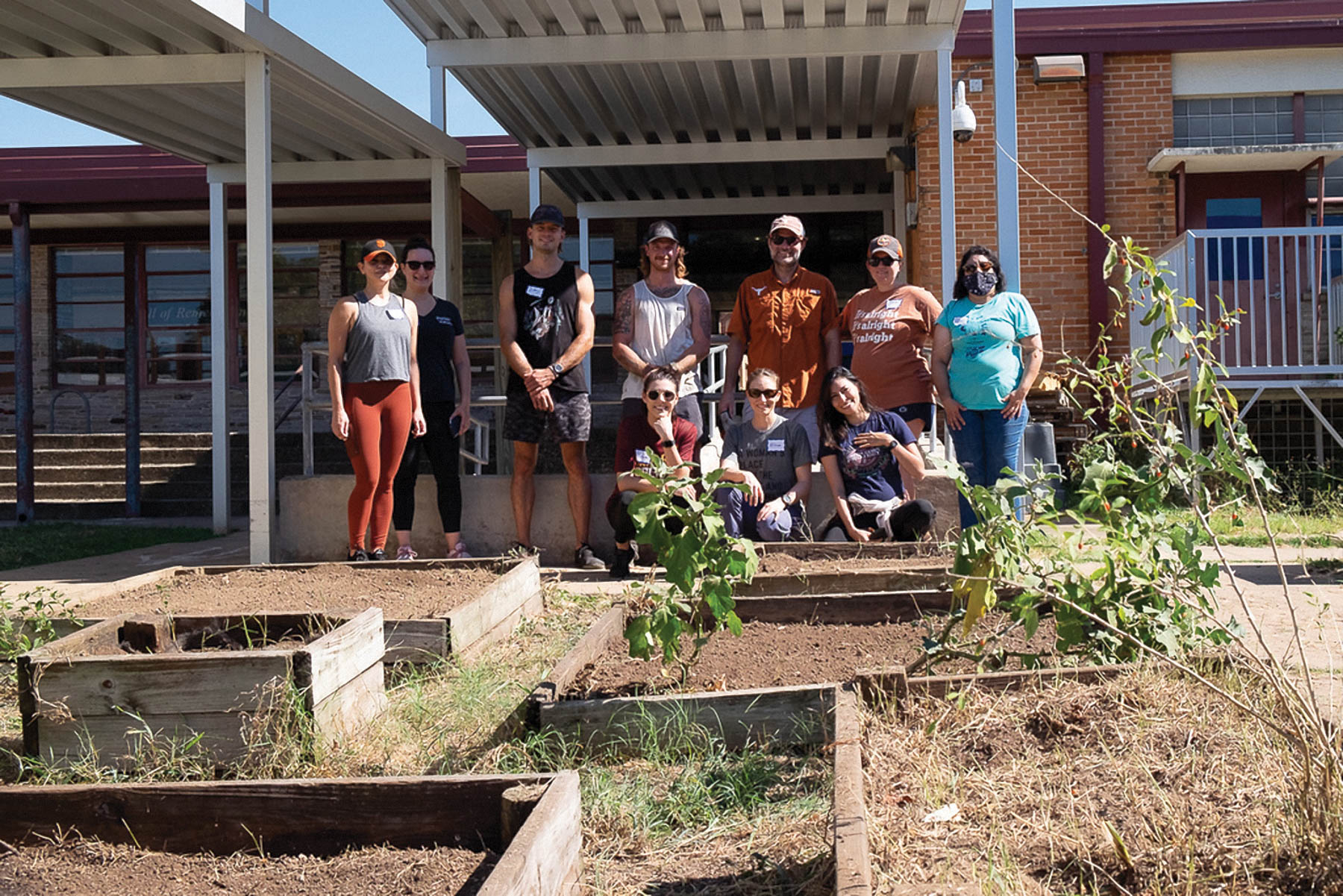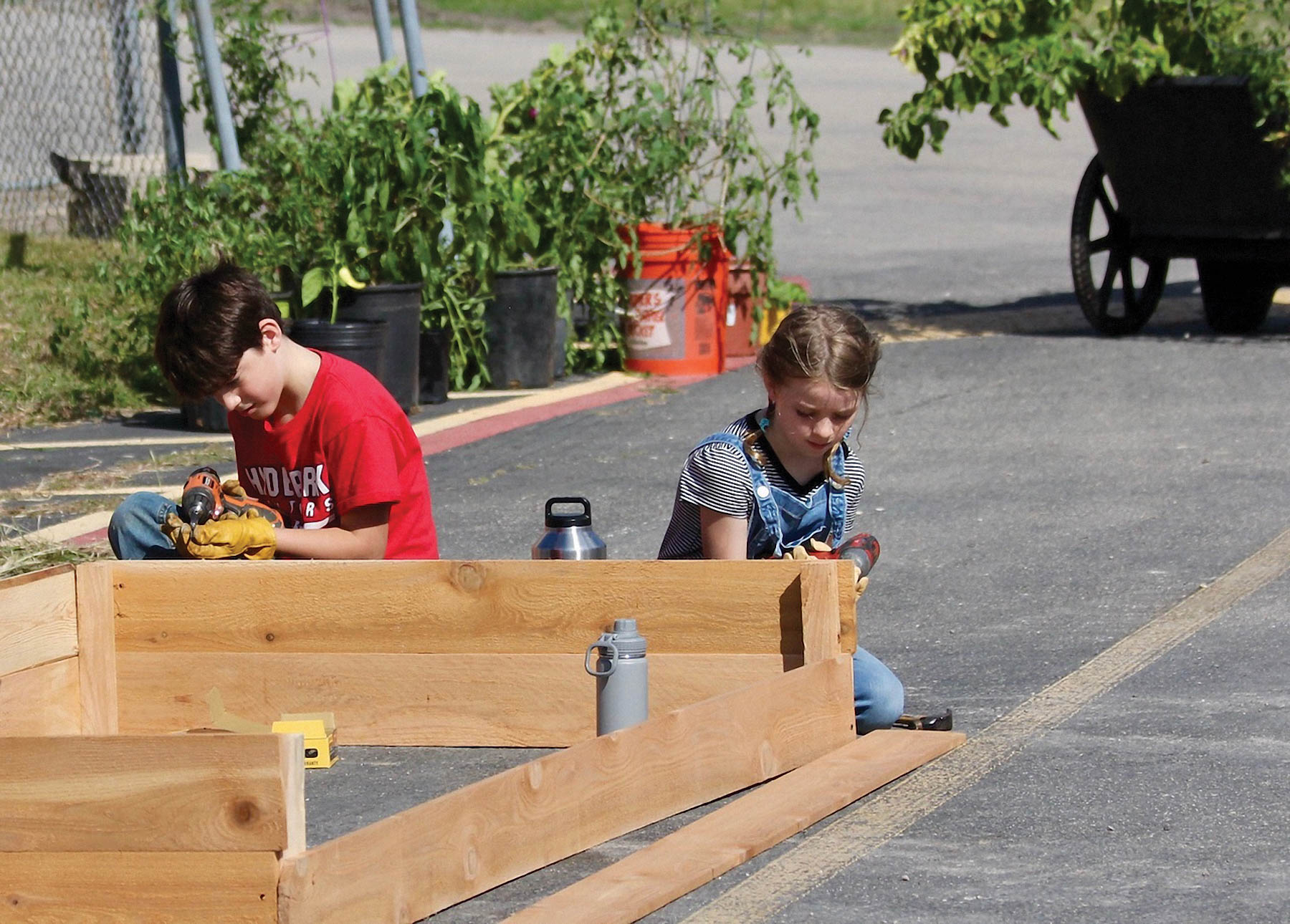All About the Green Corn Project

When Renee Studebaker retired from the Austin American-Statesman, she remembered an organization she had written about years prior. When writing about Green Corn Project, a nonprofit that educates and builds gardens in and around Austin, she thought to herself, “This is just the coolest thing.” As someone who was retired, she was eager to join the group and help them with their mission. That was seven years ago.
Founded in July of 1998, Green Corn Project (GCP) aims “to educate and assist Central Texans in building organic food gardens so that they can have access to nutritious, affordable food,” according to their website.
“We help people grow food,” says Studebaker, who is now president of GCP’s board. “But, we also help people learn how to garden and grow food. It’s about serving people who may live in food deserts or have low incomes and can’t always have access to good, fresh food. One of the ways to solve that problem is to grow your own food.”

Additionally, Studebaker believes gardening is therapeutic, making someone feel good about what they are doing. A 2016 meta-analysis of studies found that gardening has a wide range of beneficial health outcomes, including an increase in life satisfaction.
“It puts you into touch with the soil and the earth in a way that makes you feel like you’re doing something really meaningful, even if all you’re doing is growing a radish,” Studebaker explains.
A lot of members on the board or staff are food gardeners themselves and volunteer with GCP as a way to spread their passion for gardening.
For David Huebel, GCP’s garden coordinator, the nonprofit brings together several things that he finds important. He started volunteering at the nonprofit over 10 years ago.
“One (thing GCP does) is getting people involved in their food supply and understanding where their food comes from,” Huebel explains. “But also, when we work with families, it gets families together and gets people outside. And then, it’s also through gardening that one develops a relationship with nature. Green Corn Project brings all of that together.”
In addition to their Dig-in events, which are the nonprofit’s volunteer outings to install a garden site or clean up an existing one, GCP focuses on not only educating the residents for whom they are installing a garden but also educating the volunteers.

“We realize a lot of our volunteers are coming to work with us because they’re interested in learning how to garden and grow food, which is great,” Studebaker remarks. “As far as we’re concerned, everybody ought to garden.”
With extreme weather and droughts, gardening is not an easy thing to do in Texas. Some volunteers also serve with the nonprofit because their gardening hasn’t been successful, and they want to see how GCP does it.
“Our hope is that people will become gardeners who are just taking care of their own garden,” Studebaker explains. “That they’ll fall in love with gardening and come to enjoy all the benefits without us.”
However, GCP serves mostly low-income communities and recognizes that gardening comes at a cost. While some of the gardeners who GCP has worked with are self-reliant, the nonprofit continually supplies them with compost and seeds, still contributing to their gardening efforts by reducing the cost.
“We think of that (as) a huge success,” Studebaker explains. “They’re doing their own gardening, and we’re helping them with the cost of gardening.”
Additionally, the organization helps a number of low-income schools in the area with the installation and maintenance of their school gardens.
In fact, Studebaker teaches gardening and cooking classes at Smith Elementary School in Southeast Austin. She recalls a class from a few weeks ago when the kids picked fall vegetables and then made ratatouille. They all wrote down the recipe to take home with them.

“There’s nothing quite like watching kids – whether it’s from our Green Corn gardens or the school gardens we tend – pull vegetables,” Studebaker says, “The look on their faces when they pull a carrot out of the ground, and their eyes get big and round – they’re like, ‘Oh my gosh; it’s a carrot! Can I eat this?’ And it’s like, ‘Yes, you can eat that. Let’s wash it off first, but yes.’”
As someone who is extremely passionate about gardening herself, Studebaker loves introducing others to the pastime, especially through GCP.
“There’s really a good sense of well-being and accomplishment,” Studebaker says. “I think it comes from growing your own food. What I like best about working with this organization is seeing that experience in the lives of others – seeing someone else go, ‘Wow, this is cool. I love this. I can grow my own food.’”






